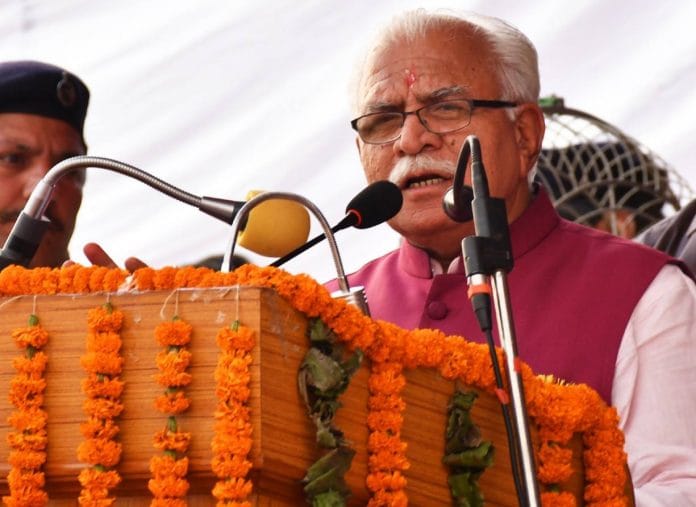The forms were withdrawn after widespread criticism; critics say the forms could have resulted in discrimination against students.
New Delhi: Apart from providing their religion, caste, and Aadhaar details of their parents, students seeking admission in Haryana schools were also asked whether their parents were engaged in any ‘unclean occupation’.
The admission forms provided in all schools in BJP-ruled Haryana, have since been removed from all school websites after it caused widespread outrage. The controversy comes even as the BJP grapples with accusations of being anti-Dalit, both outside and within the party.
According to past legal judgements – manual scavenging, tanning of leather and flaying have been considered to be ‘unclean occupations’. In the past, Haryana has been accused of other discriminatory practices such as painting ‘BPL Parivaar/Family’ on houses for the easy identification of families below poverty level.
Gujarat MLA and Dalit activist Jignesh Mevani called the government’s move obnoxious and casteist.
“On the face of it–it sounds very obnoxious and silly to me. But on a serious note, it shows that the state is clearly admitting that there are people who are doing filthy obnoxious jobs in this country. And we know this is because of casteism,” he told ThePrint.
Dalit rights activist Manjula Pradeep pointed out seeking these details could lead to further discrimination among children and how they are treated by their peers.
“I have seen children from these communities facing discrimination during mid-day meals and being forced to clean toilets in schools,” she said.
Chandra Bhan Prasad, a Dalit ideologue, feels that the forms reflect Chief Minister Manohar Lal Khattar’s mindset.
“Khattar belongs to a hardcore RSS mindset. Any work done by hand, and not a machine, is considered unclean,” he said.
Kiruba Munuswamy, a lawyer practising in the Supreme Court, said that classifying jobs as clean and unclean shows how the government values people.
“Even if they wanted to provide scholarships to those children whose parents, due to caste oppression, are not into white collar jobs, they could have identified it from the parent’s occupation column without profiling children and make them feel inferior or bad because of their parent’s occupational background,” she said.
However, Haryana is not the only state where students faced discrimination due to caste. In Himachal Pradesh, Dalit children were made to sit separately from the rest of the class while watching Prime Minister Narendra Modi’s ‘Pariksha Pe Charcha’ event.
However, a lawyer, said the term ‘unclean occupations’ has often been used by several state governments like Andhra Pradesh, Punjab, Tamil Nadu and Bihar in official documents. The lawyer, who spoke on the condition of anonymity, said these governments had used it to give preferences in social sector schemes.
“Socially such a denominator appears politically incorrect as it reinforces negative stereotypes about certain classes who are engaged in waste disposal and management. However, this seems to have been legally tolerable,” the lawyer said.






